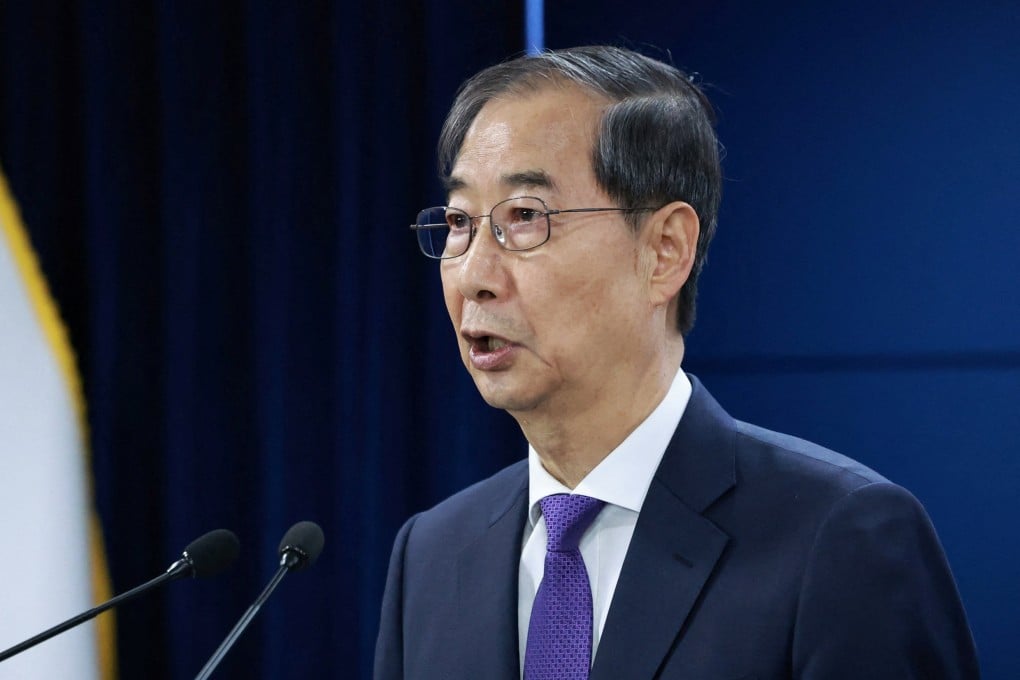By Hamzat Idris-BakoLast weekend’s Fitch Ratings which upgraded the Long-Term Foreign-and Local-Currency Issuer Default Ratings (IDR) of Kaduna State and three other states, including Kogi, Lagos and Oyo from ‘B-’ to ‘B’, reflecting improved macroeconomic stability and recent policy reforms in Nigeria is an eloquent testimony to Governor Uba Sani’s economic policy of prudence and accountability in the management of the resources of the north western state.The global ratings agency announced the development on its website on Saturday, noting that the outlook for all four states remains stable. According to Fitch, the rating action follows the upgrade of Nigeria’s sovereign credit rating from ‘B-’ to ‘B’ on April 11, 2025.
The agency explained that in line with its rating criteria, the sovereign rating upgrade has been mirrored in the states, given the predominant role of the federal government in Nigeria’s intergovernmental fiscal framework. googletag.cmd.

push(function() { googletag.display('div-gpt-ad-1718806029429-0'); }); Fitch Ratings wrote: “We consider the Federal Government’s role is predominant in intergovernmental relations, as it controls the equalisation mechanism enacted through a system of transfers to states. Therefore, the upgrade of sovereign IDRs is mirrored in the upgrade of those of Kaduna, Kogi, Lagos, and Oyo, as their Standalone Credit Profiles align with or are above the ratings of Nigeria,” Fitch stated.
This is a solid validation of Governor Uba Sani’s prudent financial engineering in Kaduna State. And, it is certainly not just cheering news to the authorities in Kaduna State beginning with the governor, but it is sweet music to the ear as it underscores the determination of the administration in just 23 months to redirect the course of the economic and financial status of the state from its precarious situation where it was tethering on the precipice to a position where it now commands international confidence. The Fitch Ratings upgrade is made all the more profound given the fact that Governor Uba Sani inherited a humongous amount of foreign and local debt of $587m and N200bn respectively.
Ten months after assuming office as Governor of Kaduna State, Senator Uba Sani, on 31 of March, 2024, jolted many when announced that the state was reeling under the yoke of huge debt. He lamented the debt inherited from his predecessor, Malam Nasir El-Rufai, declaring that the state was left with little or nothing enough to pay salaries. $(document).
ready(function(){(adsbygoogle = window.adsbygoogle || []).push({})}); He revealed the status of the state’s account while addressing a town hall meeting at the late Umaru Yar’Adua Hall, Kaduna, stating that his administration inherited a total of $587million, N85bn, and N115bn contract liabilities from the ex-governor.
Significantly, he noted that he had yet to borrow in the last 10 months of his government due to the huge debt overhang eating deep into the state’s federal allocation. He noted that due to the rise in the exchange rate, he was paying back almost triple what was borrowed by the previous administration of El-Rufai. According to him, seven out of the N10 billion Federal Allocation for the state in the month was deducted to service the state’s debt.
From this, the state was left with a paltry N3 billion, an amount which was not even enough to pay salary as the state’s monthly salary bill stood at N5.2 billion. The governor, however, assured that the state’s debt burden notwithstanding, his administration remained ever determined in steering Kaduna State towards progress and sustainable development, as the government has conducted a thorough assessment of the situation and was sharpening its focus accordingly.
His words: “Despite the huge debt burden of $587 million, 85 billion naira, and N115bn contractual liabilities sadly inherited from the previous administration, we remain resolute in steering Kaduna State towards progress and sustainable development. We have conducted a thorough assessment of our situation and are sharpening our focus accordingly.“It gladdened my heart to inform you that despite the huge inherited debt of the state, to date, we have not borrowed a single kobo.
The key priority areas of our government include safety and security, housing, education, healthcare, and support for Micro, Small, and Medium Enterprises. We are also prioritising inclusive development by investing in human capital, stimulating the economy, and providing affordable housing.” And, that is the way to go!Two weeks after Governor Uba Sani made the revelation, the Kaduna State House of Assembly on April 16, 2024, constituted an ad hoc committee to investigate all financial transactions, loans, grants, and project executions by the state government between 2015 and 2023.
$(document).ready(function(){(adsbygoogle = window.adsbygoogle || []).
push({})}); Governor Uba Sani’s disclosure had sparked a debate on the debts, prompting calls for scrutiny of key officials involved in loan procurement, project execution, and fund utilisation. The committee was to investigate all financial transactions, loans, grants, and project executions between 2015 and 2023 when Mr El-Rufai was Kaduna governor.That action by the House of Assembly was a demonstration of its approval of Governor Uba Sani’s determination to steer the state’s economy and finances in the right direction and in a way that will better serve the needs of all.
The House asked the committee to summon prominent figures, including former speakers of the 8th and 9th Assembly, commissioners of finance, former managing directors of Kaduna MDAs, senior counsellor Jimi Lawal, and former commissioners of budget and planning to appear before it.The positive Fitch Rating for Kaduna is made possible through meticulous financial engineering that is steeped in prudency and accountability.All things considered, the recent upgrade of Kaduna State’s Long-Term Foreign- and Local-Currency Issuer Default Ratings (IDRs) by Fitch Ratings from ‘B-’ to ‘B’ carries significant economic implications for both the state and the broader Nigerian economy.
This upgrade reflects improved macroeconomic stability and recent policy reforms, which are crucial for attracting investment, enhancing fiscal management, and fostering sustainable economic growth.Firstly, the upgrade signifies a positive shift in Kaduna State’s creditworthiness. A higher rating indicates a lower risk of default on debt obligations, which can lead to reduced borrowing costs for the state.
This is particularly important for Kaduna, which has historically faced challenges in managing its finances. With a ‘B’ rating, the state may find it easier to access capital markets, allowing it to finance infrastructure projects, social programs, and other essential services. Improved access to funding can stimulate economic activity, create jobs, and enhance the overall quality of life for residents.
$(document).ready(function(){(adsbygoogle = window.adsbygoogle || []).
push({})}); Moreover, the upgrade reflects the effectiveness of recent policy reforms aimed at improving fiscal discipline and governance. These reforms include measures to enhance revenue generation, streamline public expenditure, and improve transparency in financial management. By demonstrating a commitment to sound fiscal policies, Kaduna State is able to build investor confidence, attracting both domestic and foreign investments.
Such influx of capital will lead to the development of critical sectors such as agriculture, manufacturing, and services, which are vital for diversifying the state’s economy and reducing dependence on federal allocations.The upgrade also has broader implications for Nigeria’s economic landscape. As one of the key states in the northern region, Kaduna plays a pivotal role in the country’s economic development.
An improved rating for Kaduna can serve as a benchmark for other states, encouraging them to adopt similar reforms and improve their credit ratings. This collective improvement can enhance Nigeria’s overall investment climate, making it more attractive to international investors who are often deterred by the country’s historical economic volatility and governance issues.Furthermore, the upgrade can positively influence the perception of Nigeria’s sovereign credit rating.
As states like Kaduna demonstrate improved fiscal management and economic stability, it can contribute to a more favorable view of Nigeria’s overall economic prospects. This can lead to increased foreign direct investment (FDI) and portfolio investment, which are crucial for economic growth and development.In addition, the upgrade can enhance the state’s ability to implement social programs aimed at poverty alleviation and human capital development.
With improved financial standing, Kaduna State can allocate more resources to education, healthcare, and infrastructure, which are essential for fostering a skilled workforce and improving living standards. This, in turn, can create a virtuous cycle of economic growth, as a healthier and more educated population is better equipped to contribute to the economy.In conclusion, the Fitch Ratings upgrade of Kaduna State from ‘B-’ to ‘B’ is a significant milestone that reflects improved macroeconomic stability and effective policy reforms.
It enhances the state’s creditworthiness, reduces borrowing costs, and attracts investment, all of which are crucial for sustainable economic growth. The implications extend beyond Kaduna, potentially influencing the broader Nigerian economy and encouraging other states to pursue similar reforms for improved fiscal management and economic stability. • Hamzat Idris-Bako, a Consultant Economist, writes from Abuja, Federal Capital Territory (FCT) $(document).
ready(function(){(adsbygoogle = window.adsbygoogle || []).push({})}); Quote: The post Fitch Ratings: Apt validation of Sani’s financial prudence appeared first on The Sun Nigeria.
.
Politics

Fitch Ratings: Apt validation of Sani’s financial prudence

By Hamzat Idris-Bako Last weekend’s Fitch Ratings which upgraded the Long-Term Foreign-and Local-Currency Issuer Default Ratings (IDR) of Kaduna State and three other states, including Kogi, Lagos and Oyo from ‘B-’ to ‘B’, reflecting improved macroeconomic stability and recent policy reforms in Nigeria is an eloquent testimony to Governor Uba Sani’s economic policy of prudence [...]The post Fitch Ratings: Apt validation of Sani’s financial prudence appeared first on The Sun Nigeria.















